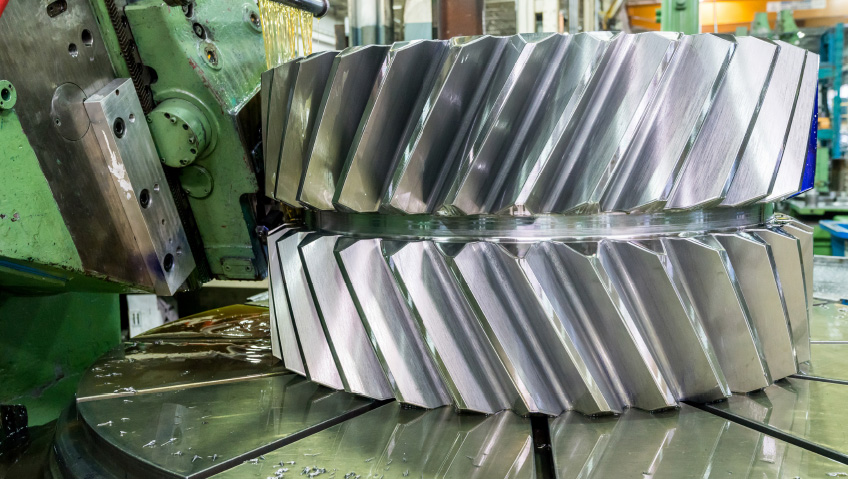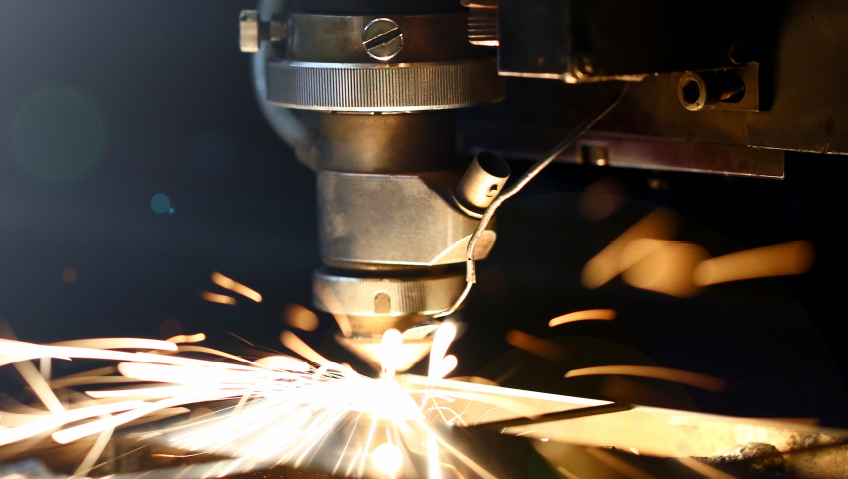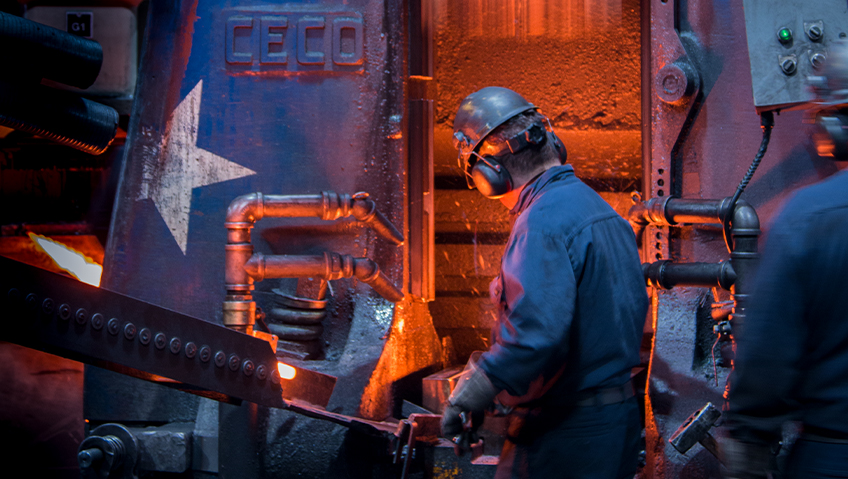Rapid Gear is a custom gear manufacturer that has led the industry in designing and building individual gears, gear boxes, and special purpose machinery since 1976. Operating from a world-class, 42,500-square-foot facility in Southern Ontario, the company has the capability to produce virtually any number of gears in sizes ranging from two inches to 200 inches.
“Even though we can do small scale production runs—maybe ten, fifteen, twenty gears—we really focus on large, low volume gearing that’s specialized,” says Vice President of Business Development Renato Foti. Industries served include mining, military, aggregate and cement, heavy industry, marine, power systems, presses and stamping, pulp and paper, and metals.
Rapid Gear’s size and capability immediately set the company apart. “We’re one of the larger gear shops in Canada,” Foti says. “I consider it a full-service house, where we make almost every type of gear that you can imagine. A lot of shops aren’t able to do that.”
The company’s production facility boasts a full range of equipment in various sizes, “so our versatility is very good,” he says. “And we’ve invested heavily in new technology and new equipment so that we can produce a wide variety of parts. It’s very rare that we have to turn down a job because we can’t make it.”
Rapid Gear recently installed a new 5-axis Mazak that allows “all sorts of configurations,” Foti explains. The team is currently installing a 200-inch diameter vertical mill that will be up and running soon. “It’s a turning lathe that enables us to rough out a large part, up to 200 inches, for heavy gearing applications.”
A few years ago, the company invested in a Gage Master for its reverse engineering abilities to ensure superior quality. “So we can guarantee that the gear is made properly. If we get a gear sent to us, we can reverse engineer it on our floor or we can even take it out to site and reverse engineer parts on site, which we do periodically in special situations. I believe we’re the only one in Canada to own that. There are only a few others in North America that have them and that gives us that extra capability to service our customers.”
Having the latest machining equipment is critical to staying ahead of the curve. “If you don’t have the proper equipment, you’d have to sub out parts or turn down jobs,” and the new equipment also increases quality. “We can keep things more accurate. We can pre-program complicated cycles into the machine and are able to maintain a high quality standard.” It also boosts efficiency, ensuring the team stays on schedule. “By investing in more equipment, we’re able to reduce our bottlenecks in the shop and meet on time deliveries a little bit easier.”
Employing in-house engineers is another factor that makes Rapid Gear stand out from the crowd. “We have a large engineering staff, which enables us to reverse engineer and support our customers full-scale, versus just looking at a print and making a part,” says Foti. “We have five engineers on our staff—for a medium-sized gear shop, that is a lot.”
Rapid Gear’s capabilities and quality have made the company popular with multiple sectors and the team has made it a point to diversify amongst them all. “I think diversification is good for all businesses,” he says. “If you put all your apples in one basket, it can be dangerous.” A portion of the company’s work is for the military, but the team is careful not to rely on any sector entirely. “It’s a good chunk [of our business], but it’s not a huge chunk, which is probably wise for us because at times it could be very busy and other times it could be very slow. It’s the same with mining and other facets of the industry like oil and gas—sectors that have their positives and negatives.”
The team has also been diversifying its sales geographically. Business with customers outside of Canada has been increasing significantly in recent years. “We sell quite a bit to the U.S. as well as international markets for mining and specialty companies. That diversification helps protect our business and gives us more experience into other marketplaces.”
Indeed, Rapid Gear is plugged into the industry, with multiple professional memberships. The company is a long-time member of the American Gear Manufacturing Association (AGMA), utilizing the association’s continuing education to keep the company’s engineers up to date with the latest knowledge and participating in AGMA’s conference each year. This involvement keeps the team in touch with the rest of the industry. “It’s great networking with other people in the gear industry because other gear companies are our customers as well,” Foti shares. “Even though they may be a competitor, they will still source from us for certain types of gears that they don’t produce or for sizes that they can’t produce.”
More recently, the company joined the Canadian Tooling and Machining Association (CTMA). This has been particularly beneficial because it helps support the industry as a whole, as well as Rapid Gear itself. “We are constantly looking for and also promoting skilled machinists in this industry, and the more we work with local organizations, the more we can help mentor and focus on being part of that growth and the future of these young people in the trades. It’s vital because we need these skills in our industry. When I travel across Canada, there are some areas where they just can’t find skilled people for these industries, and so it’s critical for us to have these memberships in local organizations within Canada and Ontario and be involved with the colleges as well.”
Finding skilled workers is not the only challenge that Rapid Gear—and the industry as a whole—faces. There is also the pressure to retain these workers through highly competitive salaries, and this can be particularly challenging for small businesses. “The smaller shops have a hard time matching these types of salaries and getting people,” says Foti. Rapid Gear works hard to match these high salaries. “Rapid gear does pay relatively well,” he says. “But it is a bit of a battle to make sure that you’re maintaining proper salaries and benefits for the employees because these are high costs.”
Rapid Gear President Tania Sabados emphasizes how important it is to overcome these challenges as an industry in order to keep manufacturing in North America. “It’s so vital to our industries and a lot of people don’t give it enough consideration,” she says. “Without manufacturing, we don’t have the steel industry, aggregate, food industry—anything. It needs to have more respect.”
“I think it’s very dangerous for countries to forget about these critical industries where you actually make something,” Foti adds. “We talk a lot at home about manufacturing, how important it is, right from mining minerals and having natural resources to being able to process those resources and supporting those industries that process them.” Rapid Gear offers this critical support. “We’re kind of a tier one, tier two for these large industries that are resource-related,” he says.
To be sure, Rapid Gear has earned its place within the industry, offering quality products to critical sectors within the North American market. From its recent investments in new technology to retaining top engineers, Rapid Gear is well positioned for ongoing success. “Because of these investments in equipment and in people, we feel the future of Rapid Gear is strong.”






